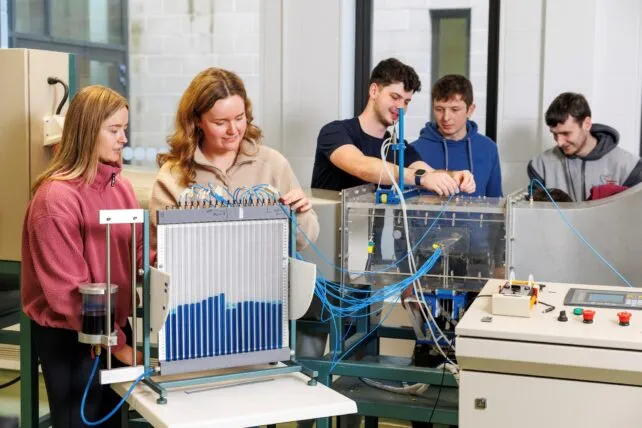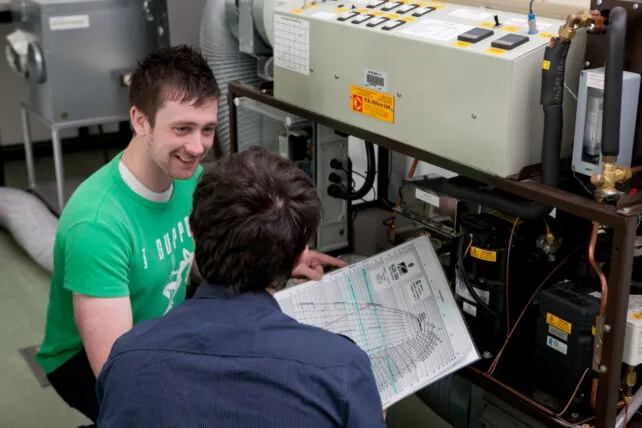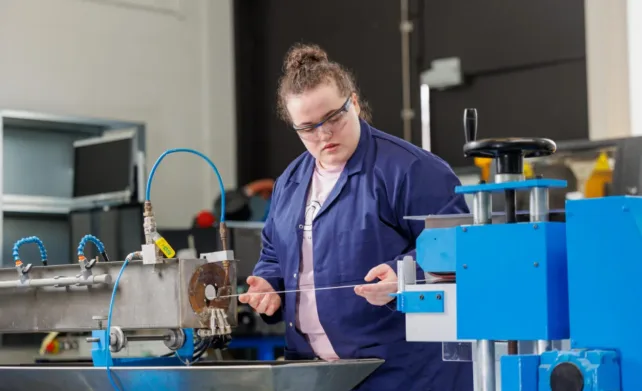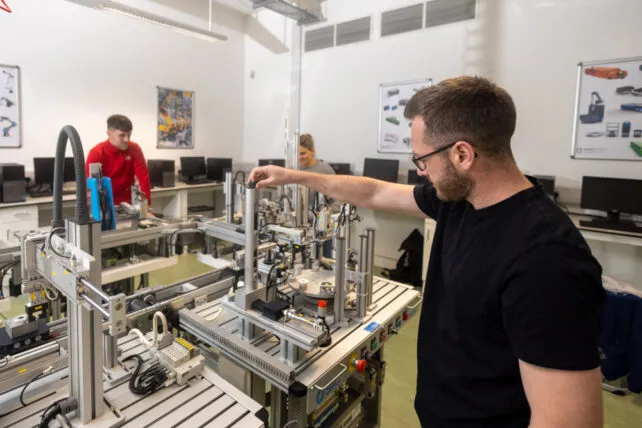Why study this course?
The Faculty of Engineering & Informatics at TUS Midlands has a long tradition of delivering mechanical engineering courses that meet the ever-changing needs of modern industry. Our close relationship with industry ensures that our programmes have a practical and applied focus that will give you hands-on experience of the most relevant areas to today’s enterprises.
The Bachelor of Engineering in Mechanical Engineering programme provides our students with a detailed understanding of the fundamental principles of mechanical engineering. Our students develop their skills and knowledge working alongside experienced lecturers. The programme of study utilises our strong industrial links, whereby our students get to experience the industry that they will be working in through industrial visits and teaching and learning grounded in contemporary industrial best practices.
In year three of the programme, our students undertake a six-month work placement from January to June. The placement carries 25 credits and must fulfil prescribed criteria to which the employer will agree in advance. Placements may be done in Ireland or abroad.
What will I experience?
While studying on this course our students will:
- Visit some of our industrial partners to experience the role of a mechanical engineer.
- Gain valuable work experience by completing a six month work placement in industry.
- Operate high-end technical engineering equipment in our cutting edge engineering laboratories
- Improve their teamwork and communications skills by working as part of small teams on problem-solving and projects.
- Will develop their problem – solving skills and reasoning techniques.
- Will work on topic-specific problems, both as part of a team and as an individual and develop your lifelong learning skills.
- Will develop an ethical awarenews with regard to the engineering profession, the environment and society.
- Gain valuable work experience in 3rd year by completing a six month work placement.





